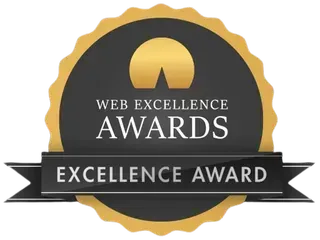Why Form 990 Schedule A Matters for Public Charities
Nonprofits know that filing Form 990 is more than a compliance requirement—it’s how they demonstrate transparency, maintain tax-exempt status, and build trust with the public. But for many organizations, one of the most challenging aspects of Form 990 is Schedule A. This section, which determines whether a nonprofit qualifies as a public charity, plays a critical role in shaping how the IRS, funders, and donors view an organization.
In this article, we’ll break down what Schedule A is, who needs to file it, how the public support test works, common mistakes nonprofits make, and why it directly impacts donor confidence. Finally, we’ll explain how working with experts like Presti & Naegele can ensure your nonprofit’s Schedule A is accurate, strategic, and compliant.
What Is Form 990 Schedule A?
Form 990 is the annual information return that most tax-exempt organizations must file with the IRS. While the core form reports high-level details about revenue, expenses, and activities, Schedule A digs deeper into how an organization receives its funding.
Specifically, Schedule A is used to:
- Prove public charity status: The IRS requires charities to demonstrate they are supported by the general public, not just a small group of donors or insiders.
- Differentiate public charities from private foundations: Private foundations face different rules, including stricter excise taxes and reporting requirements.
- Provide transparency for funders and donors: The information in Schedule A shows whether contributions come from a broad base of supporters or a concentrated few.
In short, Schedule A is where the IRS and the public can see how your nonprofit is funded and whether you qualify as a public charity.
Presti & Naegele’s Form 990 services include specialized expertise in handling Schedule A, ensuring every detail reflects both compliance and credibility.
Who Needs to File Schedule A?
Not every organization files Schedule A, but many do. It applies primarily to 501(c)(3) public charities, which are required to demonstrate that they receive substantial support from the general public or government sources.
Organizations that typically must include Schedule A are:
- Charitable organizations recognized under section 501(c)(3).
- Educational institutions, hospitals, and churches—although some churches and church-affiliated organizations may be exempt from filing.
- Nonprofits that rely heavily on donations or program service revenue.
- Newer nonprofits working to establish their public charity status.
If your nonprofit doesn’t complete Schedule A when required, or does so inaccurately, the IRS may question your public charity designation. This could result in reclassification as a private foundation, which comes with more burdensome rules.
The experienced team at Presti & Naegele helps nonprofits determine whether Schedule A is required and ensures it’s prepared correctly the first time.
The Public Support Test Explained
The most important part of Schedule A is the public support test. This is how the IRS measures whether your organization truly receives support from the public. There are two primary ways a nonprofit can pass the test:
1. The 509(a)(1)/170(b)(1)(A)(vi) Test
- This test is for nonprofits that rely primarily on donations, grants, and contributions.
- To qualify, at least one-third of the organization’s total support must come from the public (individual donors, corporations, and government grants).
- The test looks at a rolling five-year period, which smooths out fluctuations in donor support.
2. The 509(a)(2) Test
- This test applies to organizations that generate revenue through program services—for example, museums that charge admission or clinics that collect patient fees.
- To qualify, a significant portion of revenue must come from program services, with strict limits on how much can come from a small number of donors.
Both tests require precise calculations, clear categorization of revenue, and consistent recordkeeping. Missteps here can lead to the IRS questioning your status.
Because these rules are complex, many nonprofits rely on professionals like Presti & Naegele to ensure their public support tests are applied correctly and filed without error.

Common Mistakes Nonprofits Make with Schedule A
Even experienced nonprofit leaders can struggle with Schedule A. Some of the most common mistakes include:
Misreporting Contributions
Not all revenue counts toward public support. For example, large one-time gifts may need to be capped or excluded when calculating public support percentages.
Donor Concentration Errors
The IRS limits how much support can come from a small number of contributors. Overstating reliance on major donors can distort the results of the test.
Misclassifying Government Grants
Some grants are considered public support, while others fall into different categories. Confusion here can lead to inaccurate reporting.
Overlooking the Rolling Five-Year Average
The public support test isn’t based on a single year but a five-year average. Many nonprofits miscalculate by failing to apply the rolling period correctly.
Filing Late or Incompletely
Even if a nonprofit qualifies under the test, incomplete or late filing can result in penalties or negative scrutiny.
Each of these mistakes can jeopardize a nonprofit’s public charity status. The safest way to avoid them is by working with experts who specialize in Form 990 preparation.
Why Schedule A Affects Donor Confidence
Beyond IRS compliance, Schedule A has a direct impact on how funders, donors, and stakeholders perceive your organization.
- Transparency builds trust: Donors want to know an organization is supported by a broad base, not just a handful of funders.
- Grant eligibility depends on it: Many foundations and government funders review Form 990 before awarding grants. A clean Schedule A reassures them that your organization is financially stable.
- Board confidence improves: Board members feel more confident when they see clear, accurate reporting of public support.
- Community reputation strengthens: Being classified as a public charity signals credibility, encouraging new supporters to engage.
In other words, Schedule A isn’t just about compliance—it’s about storytelling. A well-prepared form demonstrates that your organization has broad community backing and is built for long-term sustainability.
At Presti & Naegele, our team ensures Schedule A communicates the strength of your public support while protecting your compliance standing.
How Presti & Naegele Helps Nonprofits Get It Right
Preparing Schedule A is often too complex to manage in-house without risk. That’s where Presti & Naegele provides unmatched value. With over 40 years of experience, they offer:
- Specialized expertise in nonprofit filings: From small charities to large foundations, the team understands the unique challenges of public support reporting.
- Guidance through every Schedule A scenario: Whether you qualify under the 509(a)(1)/170(b)(1)(A)(vi) test or the 509(a)(2) test, Presti & Naegele ensures calculations are correct.
- Precision in handling contributions and grants: Misclassified revenue is one of the biggest risks—our experts make sure everything is correctly reported.
- Tailored support: Every nonprofit is different, so services are customized based on your funding mix and structure.
- Nationwide availability: With clients across the U.S., Presti & Naegele serves nonprofits in every state.
When nonprofits partner with Presti & Naegele, they gain more than compliance—they gain confidence that their story of public support is being communicated with accuracy and impact.
Conclusion
Form 990 Schedule A may seem like just another piece of paperwork, but it’s central to a nonprofit’s ability to maintain public charity status, secure funding, and build credibility. By understanding the public support test and avoiding common pitfalls, organizations can protect their compliance and enhance donor trust.
Still, the complexity of Schedule A makes it risky to handle alone. Partnering with experts like Presti & Naegele ensures every detail is accurate, every calculation correct, and every filing timely.
If your nonprofit wants peace of mind and confidence in its Form 990 filing—especially Schedule A—contact Presti & Naegele today.
SHARE THIS POST:

Presti & Naegele, offering expertise in accounting and advisory services. Dedicated to empowering your financial success journey.
Leave a COMMENT

For inquiries or guidance from our experts, contact Presti & Naegele Today. Your success awaits!
Blog - Website Form
RECENT POSTS











